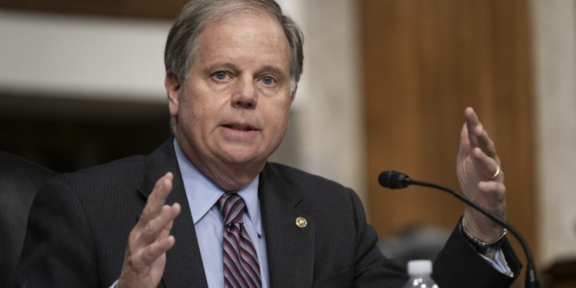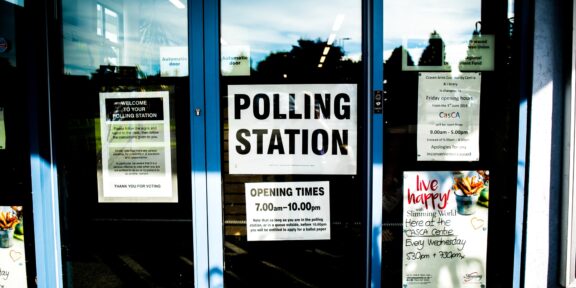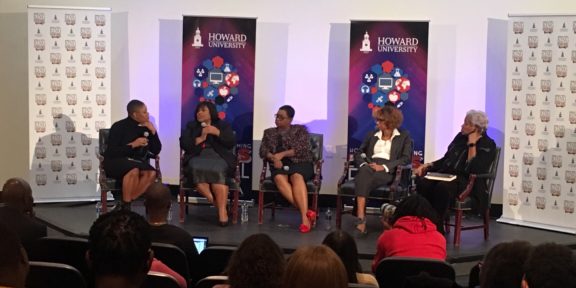Emerging leaders touched on the political fringes and everything in between during a town hall at the Congressional Black Caucus annual legislative conference.
Self-reliance, educational reform, community inclusion and changing urban and political landscapes in the midst of the 2010 midterm elections were highlights of the annual town hall. Conference attendees from all around the nation asked questions to the panel of beginning and mid-career professionals, which included state Rep. Cedric Richmond, D-New Orleans, and Helena Andrews, author of “Bitch Is the New Black.”
“When are we going to get to independent thought, individual thought as opposed to always feeling that we have to have organize and have a common issue?” asked one audience member in reference to a larger dialogue about redefining the black agenda. “When are we going to start advocating for things on daily basis?”
Andrews was vocal on this topic and cited her involvement in the women’s and lesbian, gay, bisexual and transgender movements as examples of activism not centered around the black community.
“We see a lot of stories about the Civil Rights Movement versus the [Bill] Cosby generation, which we have been called before, and how we view organizing and being civic minded differently,” said Andrews, whose mother is a lesbian.
Eye on Youth
Panelists and audience members also discussed ways to improve public education and channel the energy of urban youth. Rep. Andre Carson, D-Ind., spoke of the commercial potential of independent musicians. He suggested that the artistic talent of black youth could be honed into a viable product and used to help families who are financially struggling.
At one point, Lakesha Rogers, a candidate for the 22nd Congressional District in Texas and LaRoche Youth Movement activist, caused a stir when she announced that her campaign for the seat included a call for impeachment of President Barack Obama.
“[Obama] is playing golf while the people are being left to suffer,” Rogers said in reference to the president’s golf outing during the BP oil spill. She cited Detroit’s economic plight as evidence that more needs to be done to spur recovery in America’s municipalities.
Ushers temporarily took the microphone from Rogers, but returned it after a few moments and allowed her to finish her question. “My question is what are we going to do about the economy?” she finally asked.
After Mae Jemison, the first black woman to travel in space, defended Obama by reminding the political candidate that the president has not committed any crimes, she spoke about using educational reform as a focal point for political unity.
Washington Post editorial writer Jonathan Capehart suggested that Rogers focus her political ire elsewhere.
“[Rogers] mentioned the bailouts, but also Detroit burning down. Well, that’s not the president’s fault. That’s Detroit’s fault,” he said. “If she wants something done in her community, she needs to focus more locally.”
Effectiveness of Integration
Another audience member questioned the effectiveness of integration in lifting the black community out of the impoverished conditions experienced by many between Reconstruction and the Civil Rights Movement. This brought on a dialogue about gentrification and the role younger blacks play in the gentrifying of urban neighborhoods.
“I don’t want to go back to the fifties to be quite frank,” he said.
Andrews agreed with Capehart and outed herself as a “gentrifier” in the Shaw community of the nation’s capital, a neighborhood historically known for housing a mix of working and business-class professionals. “The point of being free is that you can do what you want,” Capehart said after the discussion.
An urgency to move past racial politics and embrace the realities that exist in the current political climate were prevailing themes during the discussion. Panelists also discussed the political dynamic of the Tea Party and the Republican Party’s ability to unite under a common cause: Defeating “the President of the United States,” said Richmond, the New Orleans representative
Capehart disagreed with Richmond’s assertion and said the Republican Party is capitalizing off the economic and political frustration that created the Tea Party. Capehart said blacks should look at issues in the black community as part of the “American agenda” instead of resting in the margins of a national constituency that has grown in diversity since the Civil Rights era.
“The more we keep fighting for a separate agenda,” he said, “the longer we’ll be asking why problems aren’t solved.”




